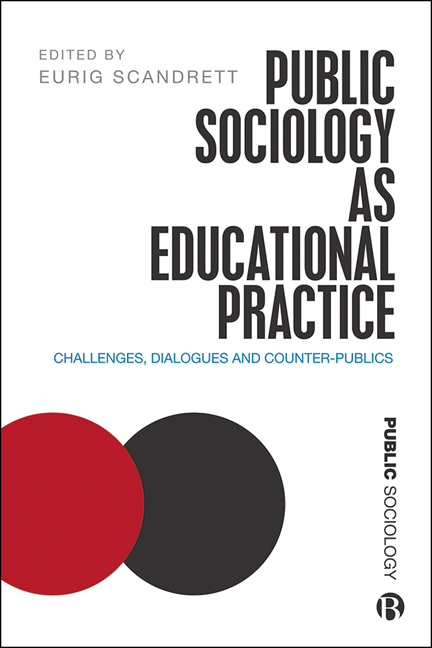I.5 - Public Sociology and the Invisibility of Class
Published online by Cambridge University Press: 02 March 2021
Summary
Problems with class
The rationale for this chapter is different from the others in this collection. Firstly, as editor, I was struck by the paucity of explicit references to class – whether in terms of identity, structure or as a category of analysis – in the various cases in this collection. The authors of the various cases are practising public sociology focused on gender, ethnicity, refugee status, mental health, age, and issues ranging from alcohol to migration, environmental pollution to violence – and even around trade union organising – without explicit reference to class. Many of the people with whom our authors are practising public sociology are working class, yet class was not being explicitly referred to as a category of public. This struck me as surprising, especially since class is a major (and for some sociologists, the major) systemic cause of injustice and exploitation, and increasingly so under the austerity regime of neoliberalism, as well as a significant (or the significant) collective agent for transformation. I therefore decided to include a chapter specifically addressing this issue.
Secondly, Paul Gilfillan's work (Case I.4), which does focus on class explicitly, raised some interesting and difficult questions. Whilst his chapter analyses the issues faced by the Workers Education Association, his ethnographic research in a working class community in Fife also generated some narratives from white working class men which were highly resentful of what is perceived as the imposition of ‘diversity’ by a cultural elite, onto an established, Scottish working class culture. Paul illustrated this with a particular quotation from an interview with ‘Alec’, which drew on narratives of misogyny, racism and homophobia. Such narratives are certainly not unique to working class white men in Fife, nor are they representative of working class communities, but ‘Alec’ may be taken as symbolising someone who occupies a relatively subaltern class position, and simultaneously a relatively dominant position in relations of gender, race, and sexuality. However, what is significant for public sociology is how the invisibility of class in public narratives facilitates ‘Alec’ in misinterpreting the source of his grievances, transferring them onto the symbolic representation of the resistance of other subaltern groups. This is particularly pertinent when class has such a significant explanatory role in understanding exploitation at a time when class exploitation is growing.
- Type
- Chapter
- Information
- Public Sociology as Educational PracticeChallenges, Dialogues and Counter-Publics, pp. 79 - 92Publisher: Bristol University PressPrint publication year: 2020



